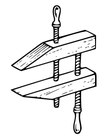Online Video Comes Under Censor Scrutiny

The week ahead could be a rough one for Chinese online video stocks, with word that the government agency in charge of screening content has ordered the removal of 4 popular US television series from services including Youku Tudou (NYSE: YOKU) and Tencent Video (HKEx: 700). Word has circulated for the last few weeks that this kind of a move might be coming, but this looks like the official launch of a new rule that will make these fast-growing video sites subject to the same strict censorship rules that apply to all foreign movies, TV shows, music and other published material entering China. That could mean headaches for the video site operators, which in all fairness do increasingly look like TV station operators.
The list of shows to be yanked is led by the popular “Big Bang Theory” TV series, and also includes “The Good Wife”, “NCIS” and “The Practice”. (English article) “Big Bang” had been exclusive licensed to Sohu (Nasdaq: SOHU), meaning its loss will deal a substantial blow to China’s third largest online video operator. “Big Bang” has been watched more than 1 billion times online since 2009, making it the most popular US television series for Chinese viewers.
Spokespeople at Youku Tudou and Tencent Video confirmed the move, but added that no reason was given for the decision by the State Administration of Press, Publication, Radio, Film and Television. The action doesn’t come as a huge surprise, since the body said last month it would strengthen oversight of online audio and video content.
This decision was almost certainly influenced by the nation’s hundreds of traditional TV broadcasters, who have suddenly seen their business start to shrink as they face new competition from this up-and-coming group of online services. Such newer services have numerous advantages over the traditional TV broadcasters, allowing them to build up a collective audience of 400 million users in a very short time.
For starters, all of the online services have national distribution since they’re Internet based. By comparison, only a handful of Chinese broadcasters have such national reach, and most are limited to very small markets in their home provinces. What’s more, the online sites can offer a huge array of TV programs and movies for their viewers, all of which are available on-demand. By comparison, offerings from traditional TV stations are far more limited and include little or no foreign-produced content. Few have the technology to offer programs on-demand.
With all those factors working against the traditional broadcasters, it’s no big surprise that they would lobby strongly for tighter oversight of the content being offered by their Internet-based video rivals. And to be fair, it does seem reasonable that these online sites should be subject to the same censorship requirements as traditional broadcasters, even though I personally don’t believe in such censorship.
In addition to the names I’ve already mentioned, other companies that could be vulnerable to this new oversight include Baidu’s (Nasdaq: BIDU) iQiyi, China’s second largest online video site, as well as smaller operators like LeTV (Shenzhen: 300104) and Xunlei. The move could also dampen plans for Internet-based TV products delivered using set-top boxes from a range of companies, including smartphone sensation Xiaomi.
We’ll have to wait and see how many shows actually get yanked before making a bigger pronouncement about the impact of this rule. The fact that “Big Bang” was one of the first shows to get pulled is a bit worrisome, as the series is about a group of physics nerds in a California university and really doesn’t seem to have any objectionable content. My educated guess is that this clampdown will be moderate in scope, putting a significant but not fatal damper on the growth prospects of these fast-rising online video sites.
Bottom line: A new clampdown on content from online video sites is likely to have a moderate impact on their business, and is most likely in response to pressure from traditional broadcasters.
Related posts:
(NOT FOR REPUBLICATION)
